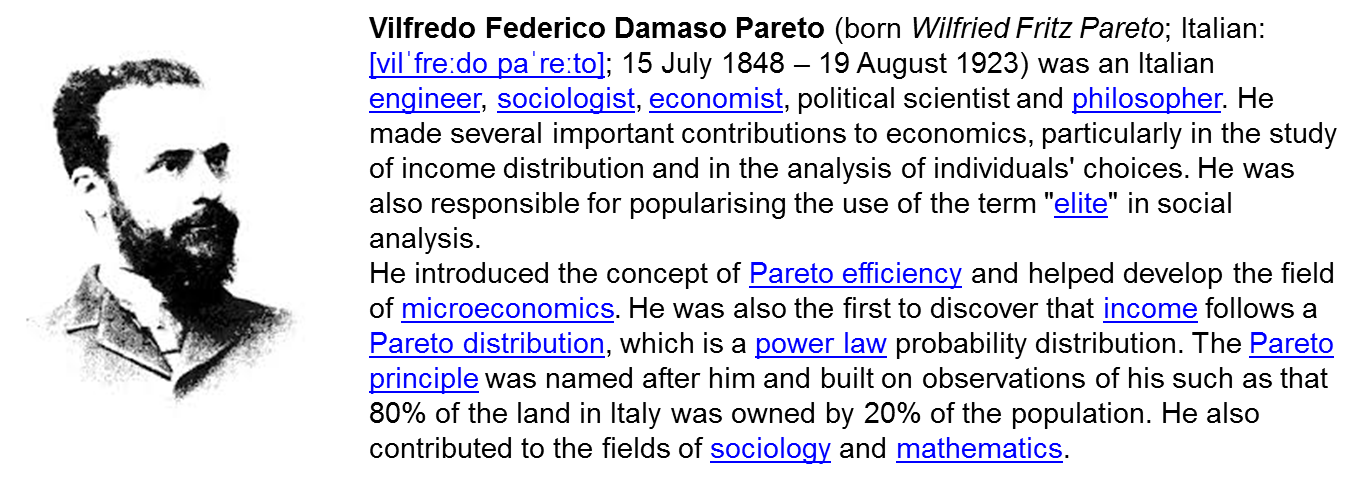by Rick Baker
On Aug 24, 2013
The 80/20 Rule... also known as The Pareto Principle
The Pareto principle (also known as the 80–20 rule, the law of the vital few, and the principle of factor sparsity) states that, for many events, roughly 80% of the effects come from 20% of the causes.[1][2]
Business-management consultant Joseph M. Juran suggested the principle and named it after Italian economist Vilfredo Pareto, who observed in 1906 that 80% of the land in Italy was owned by 20% of the population; he developed the principle by observing that 20% of the pea pods in his garden contained 80% of the peas.[2]
It is a common rule of thumb in business; e.g., "80% of your sales come from 20% of your clients". Mathematically, the 80-20 rule is roughly followed by a power law distribution (also known as a Pareto distribution) for a particular set of parameters, and many natural phenomenon have been shown empirically to exhibit such a distribution.[3]
The Pareto principle is only tangentially related to Pareto efficiency, which was also introduced by the same economist. Pareto developed both concepts in the context of the distribution of income and wealth among the population.

Source: Wikipedia
See Comments below for 80% Rules linked to 80/20 Rule thinking.